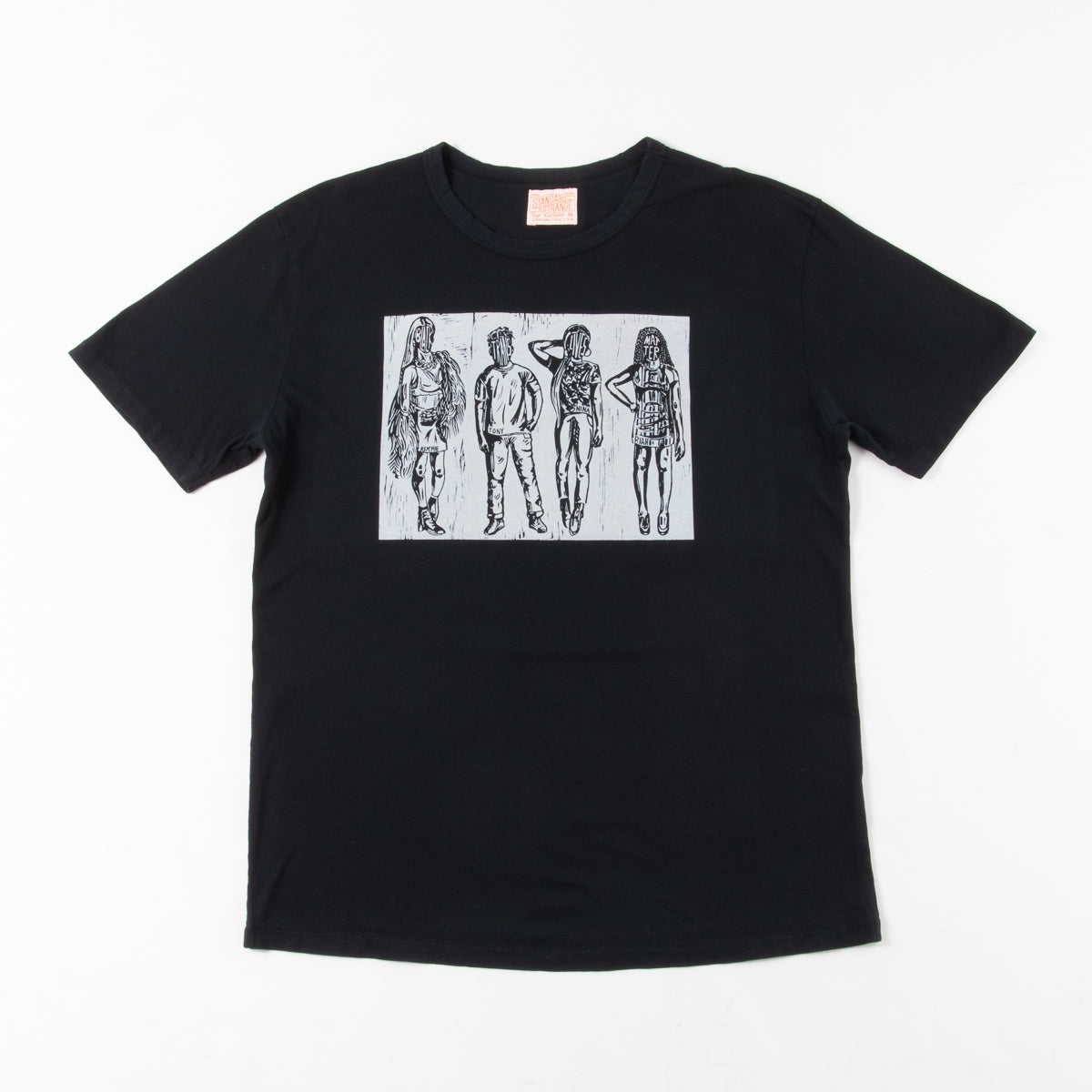
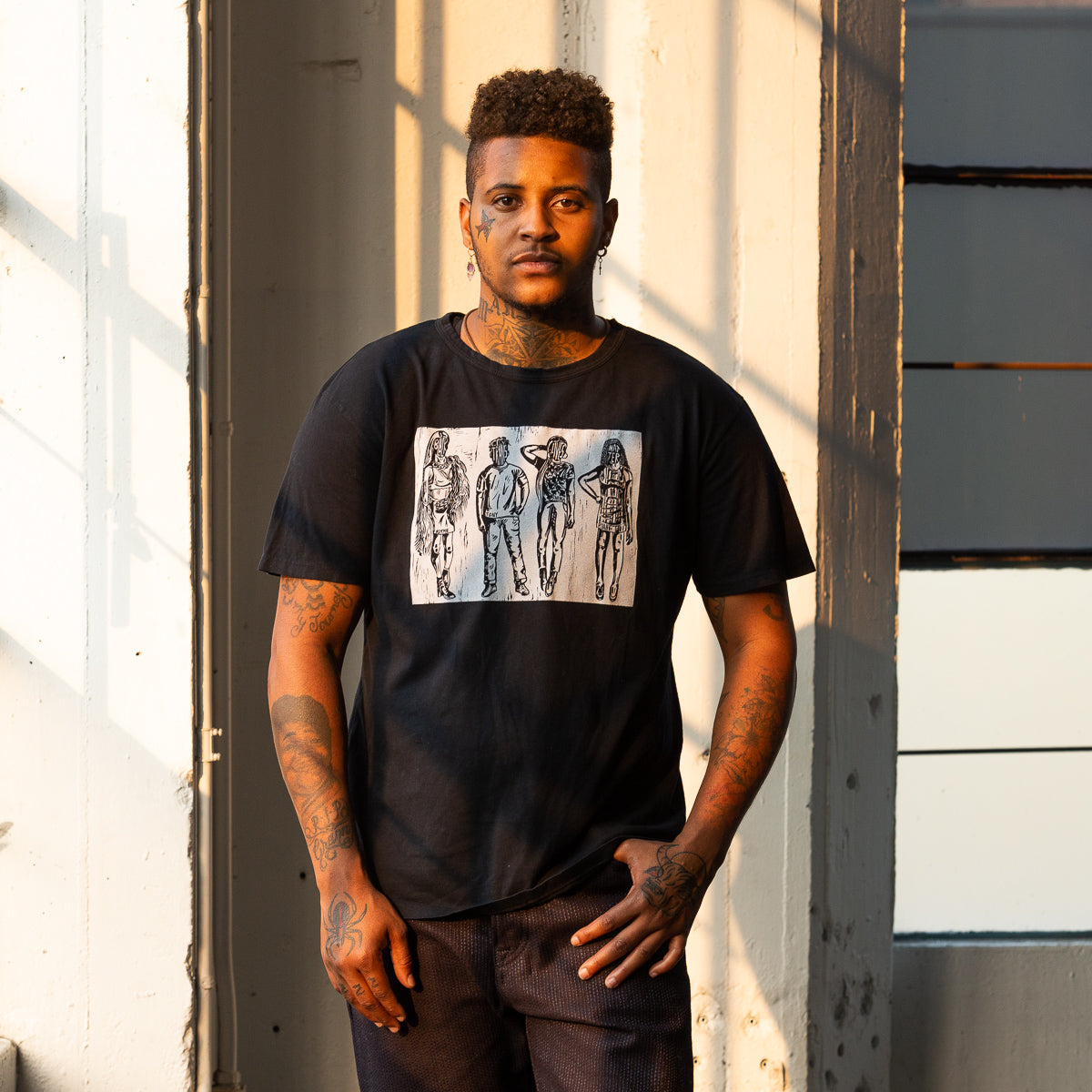
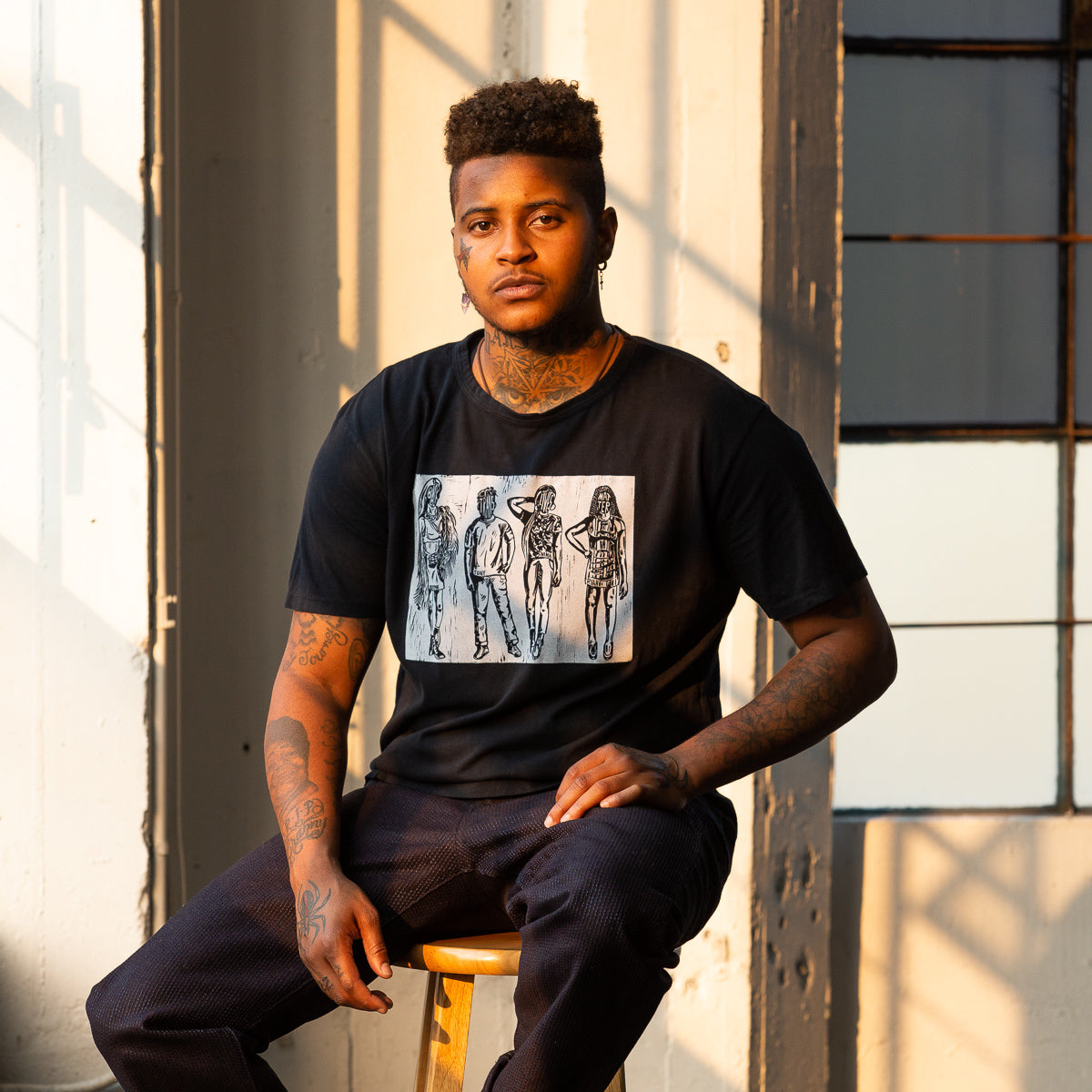
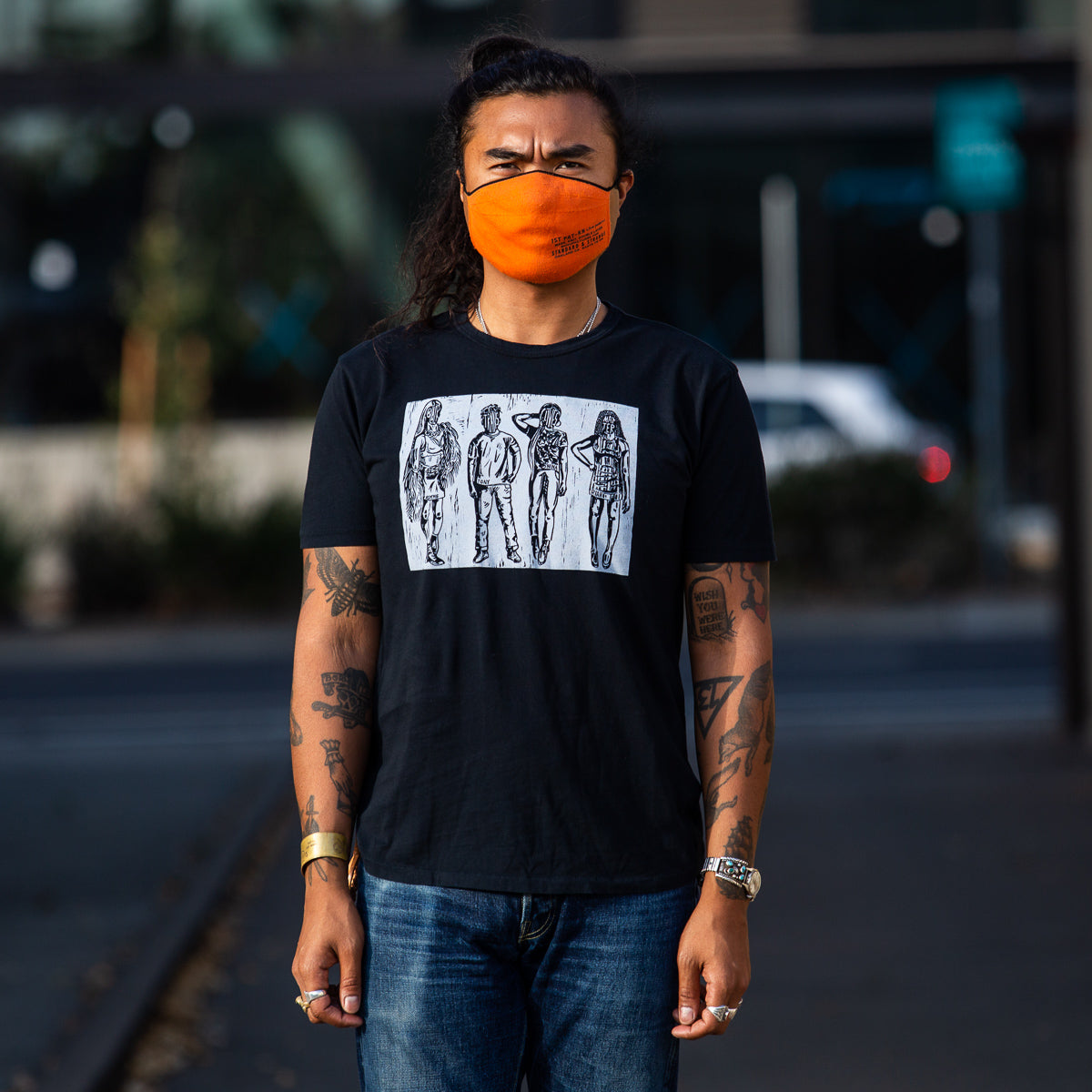
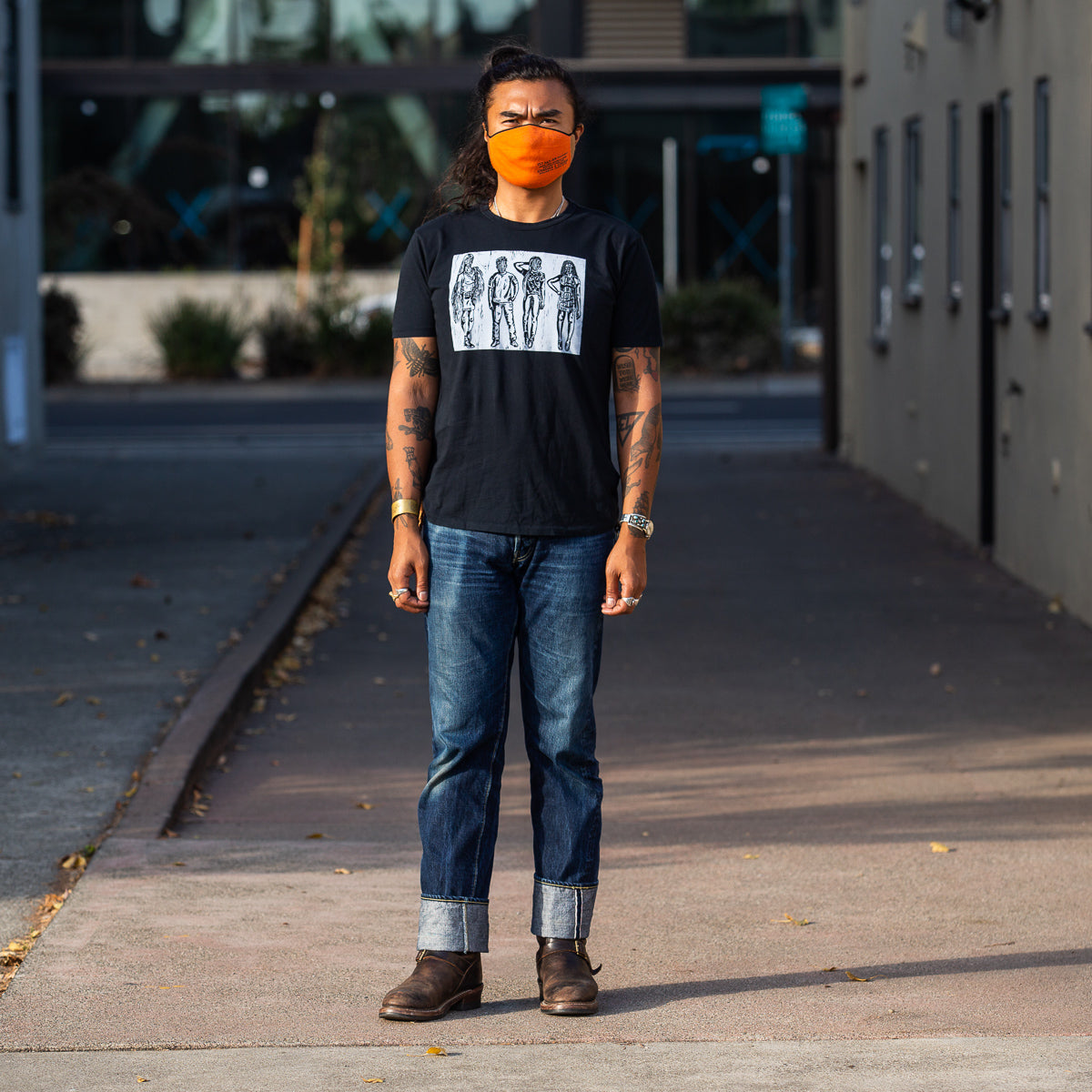
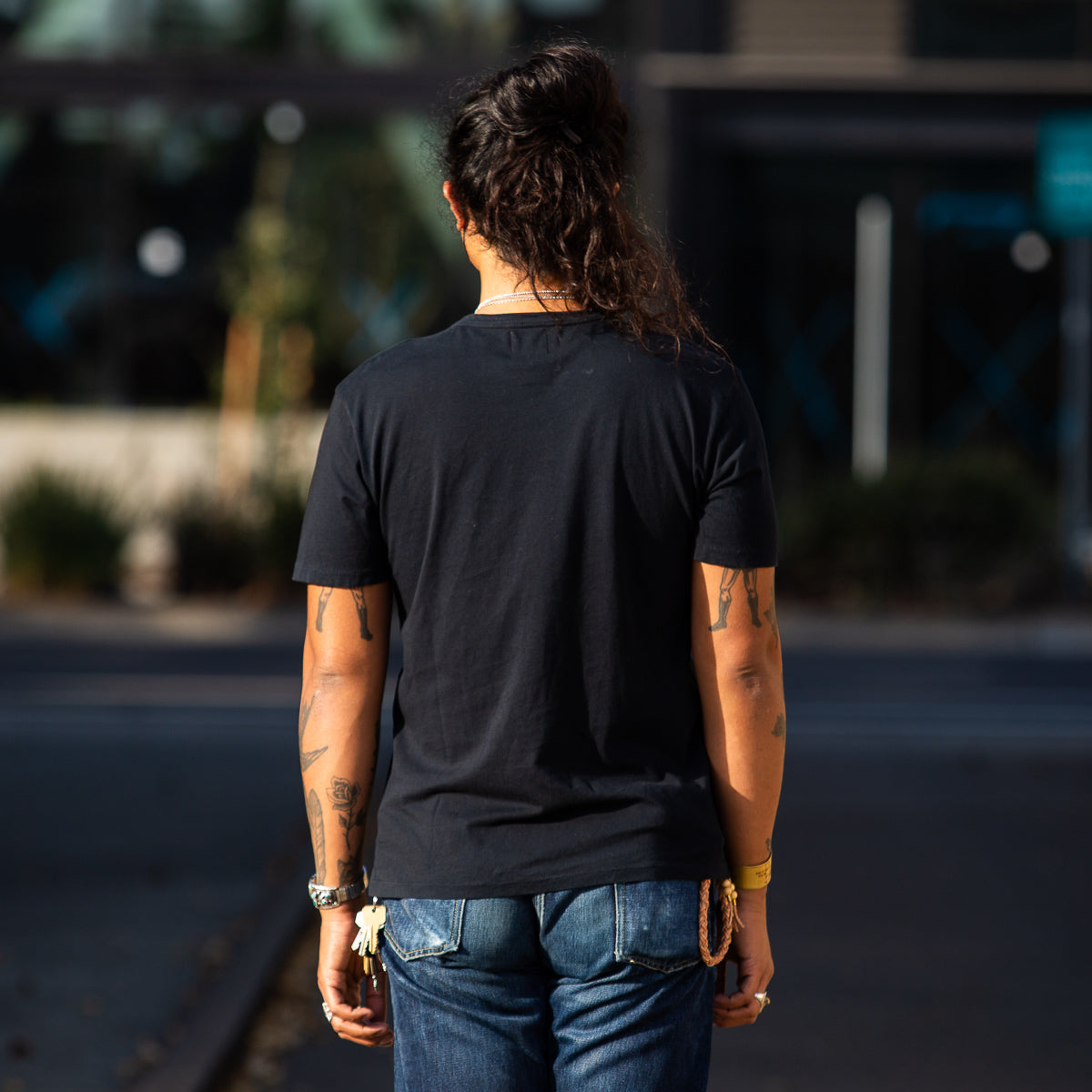
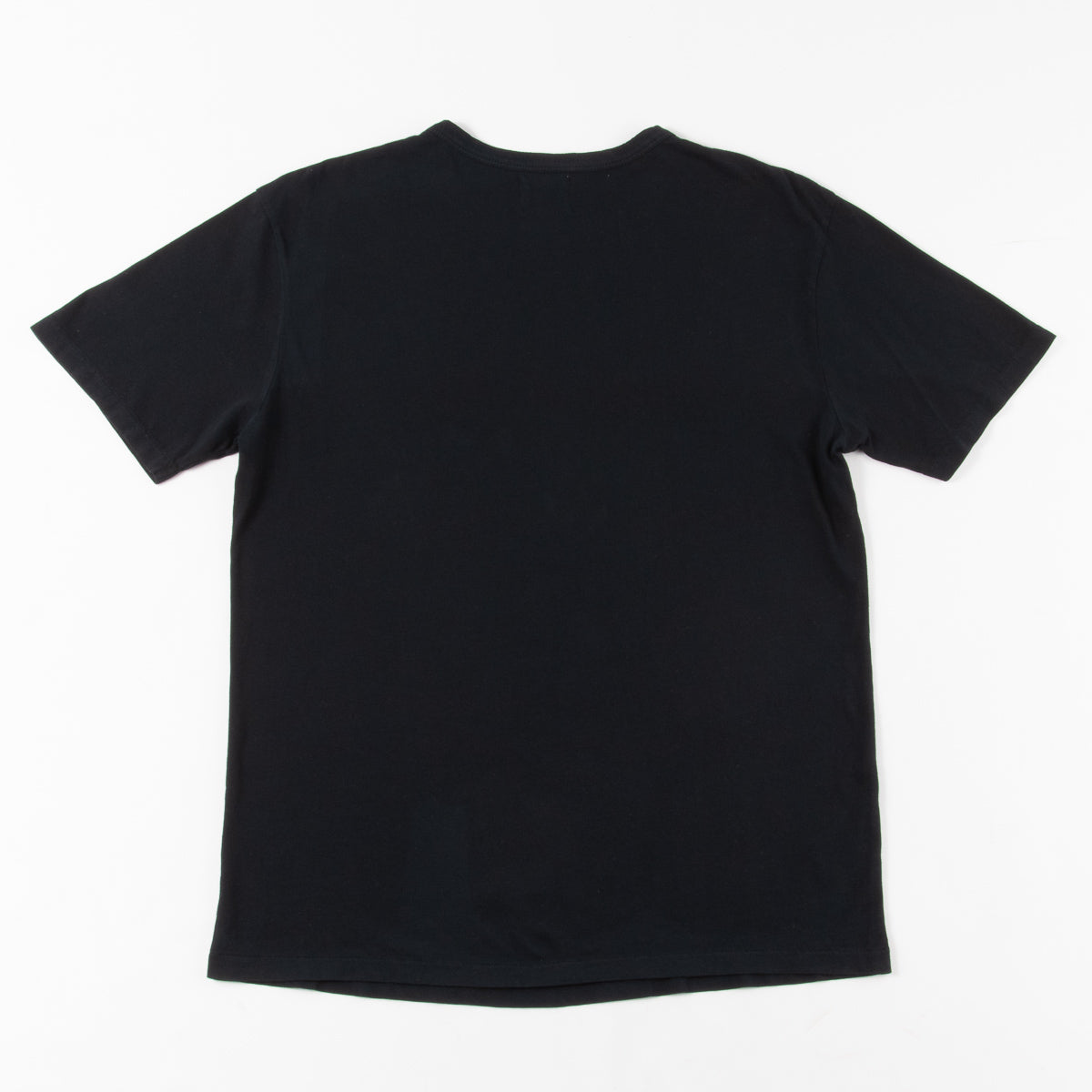
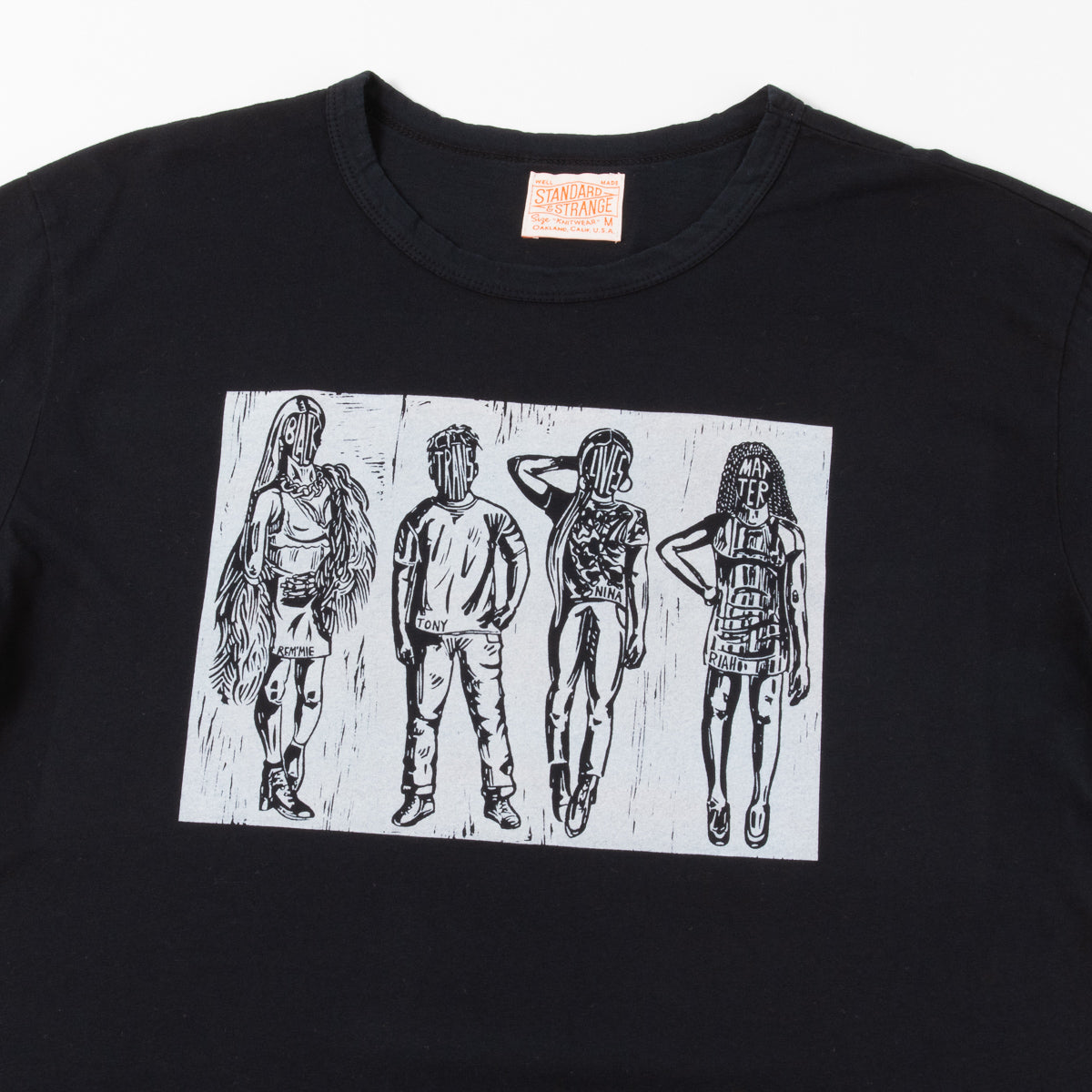
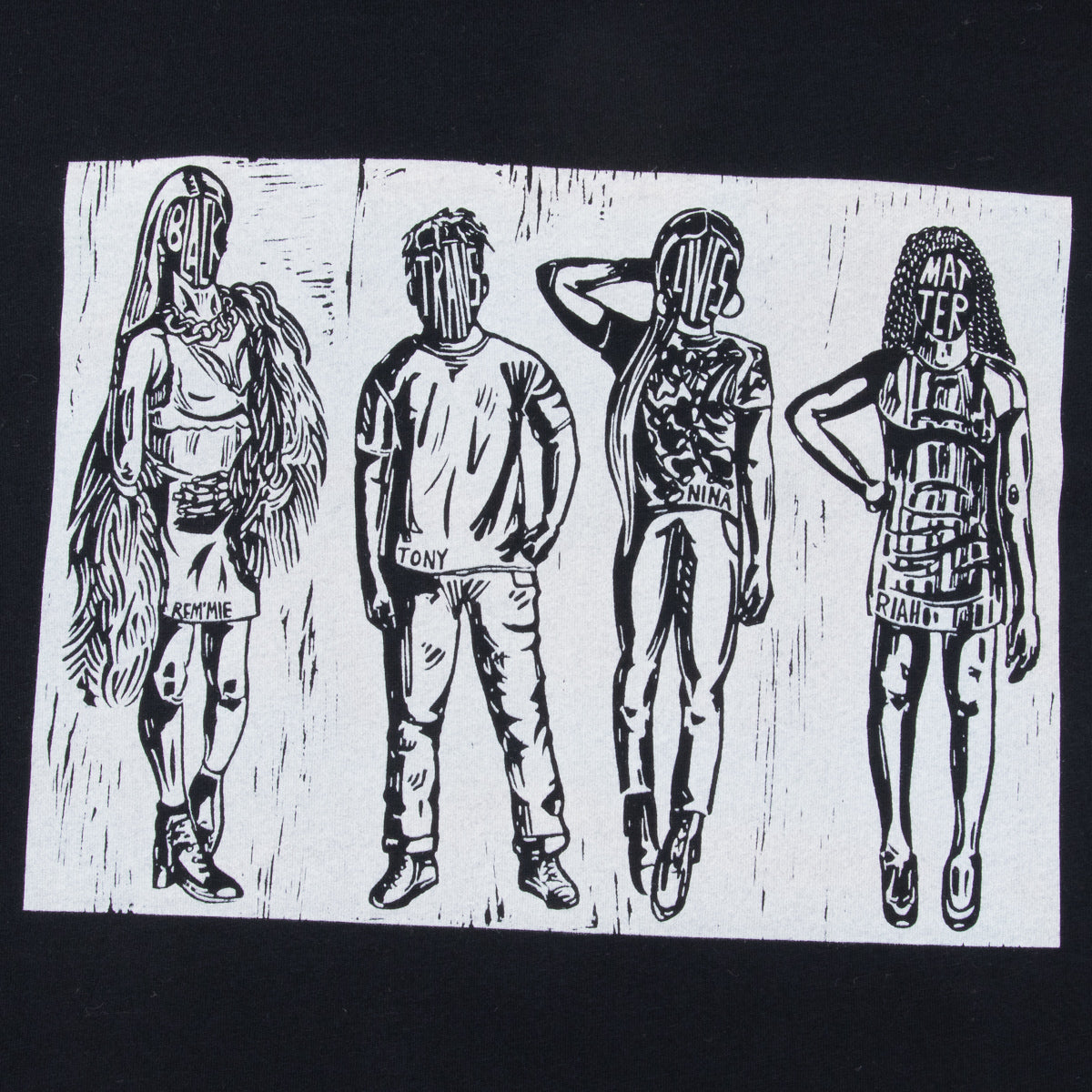
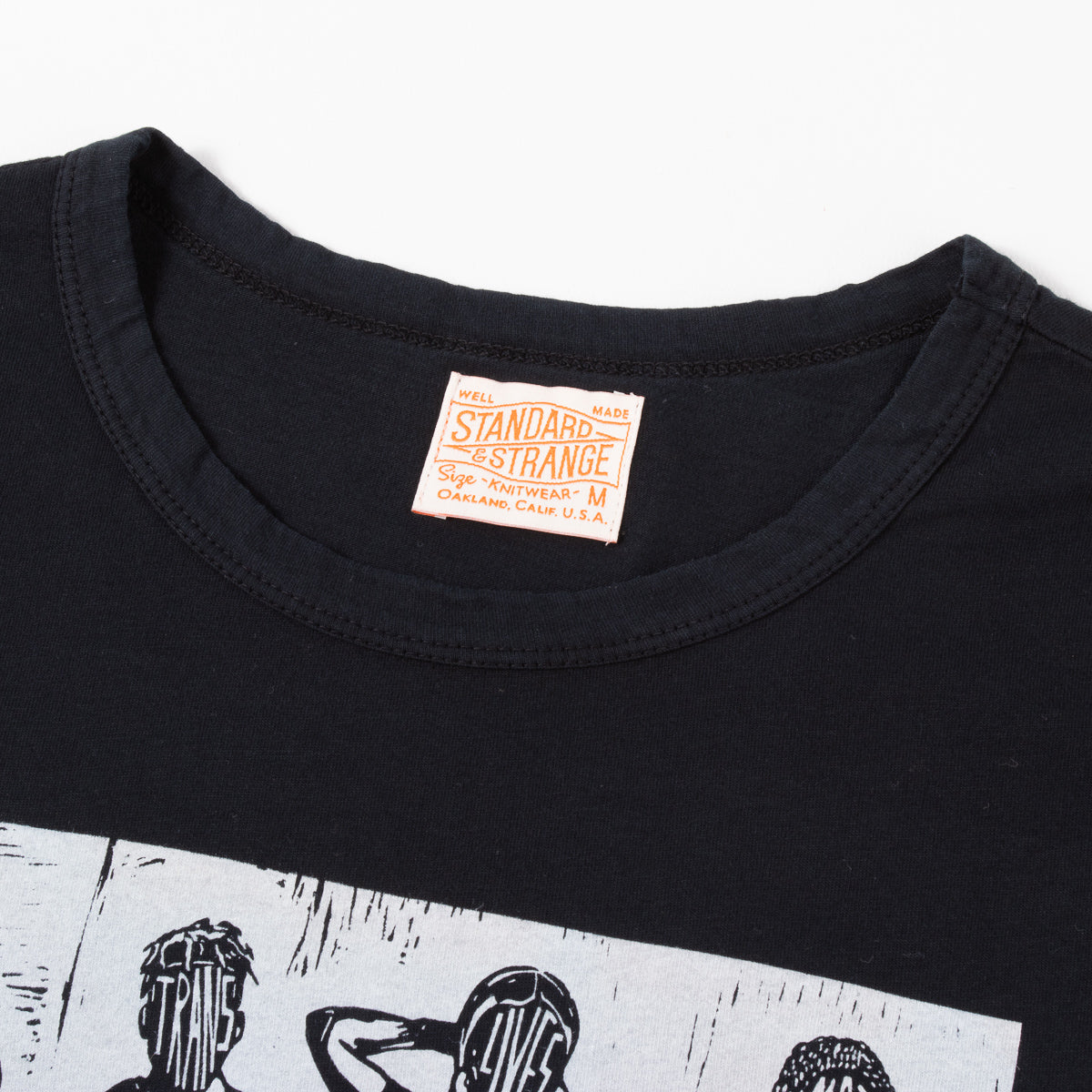
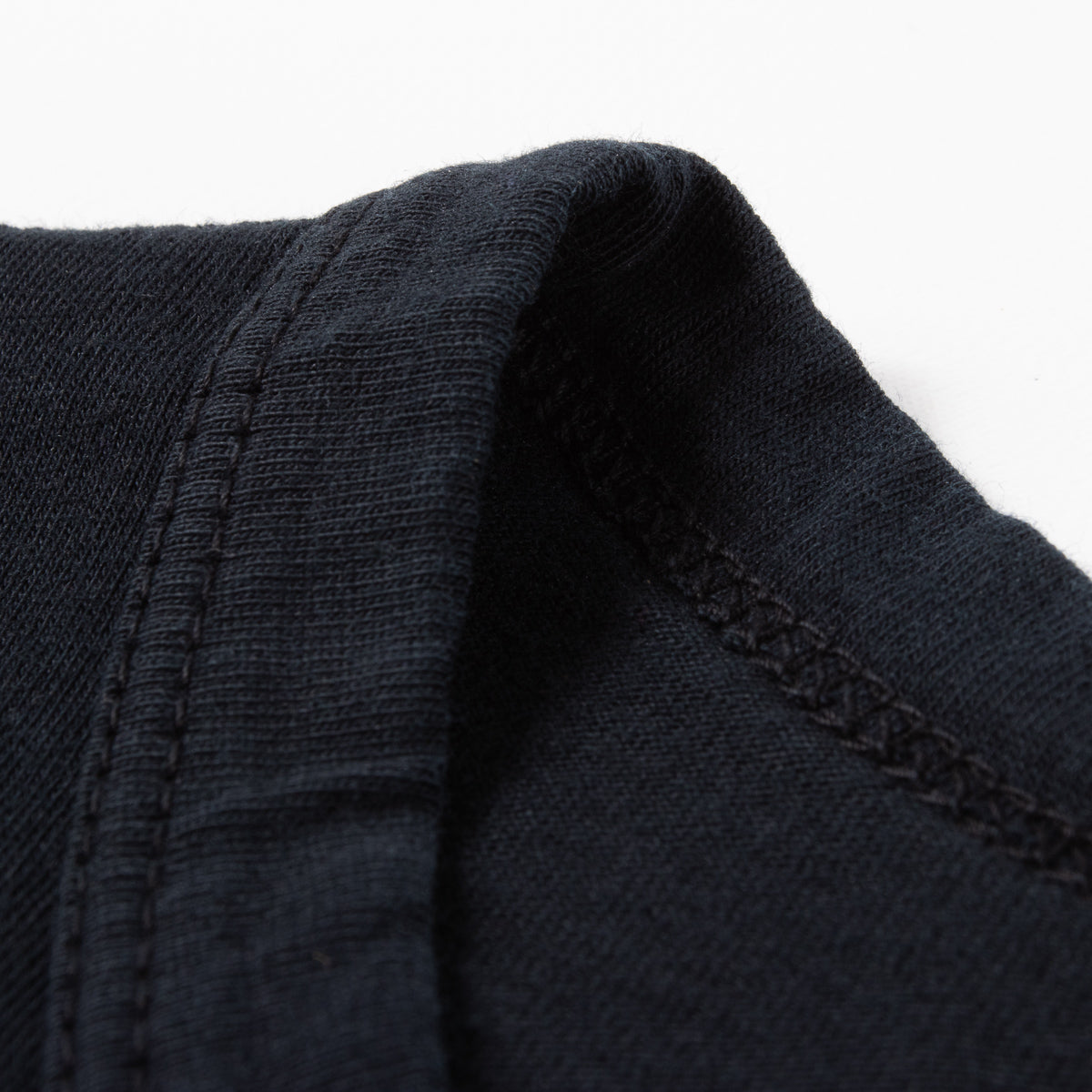
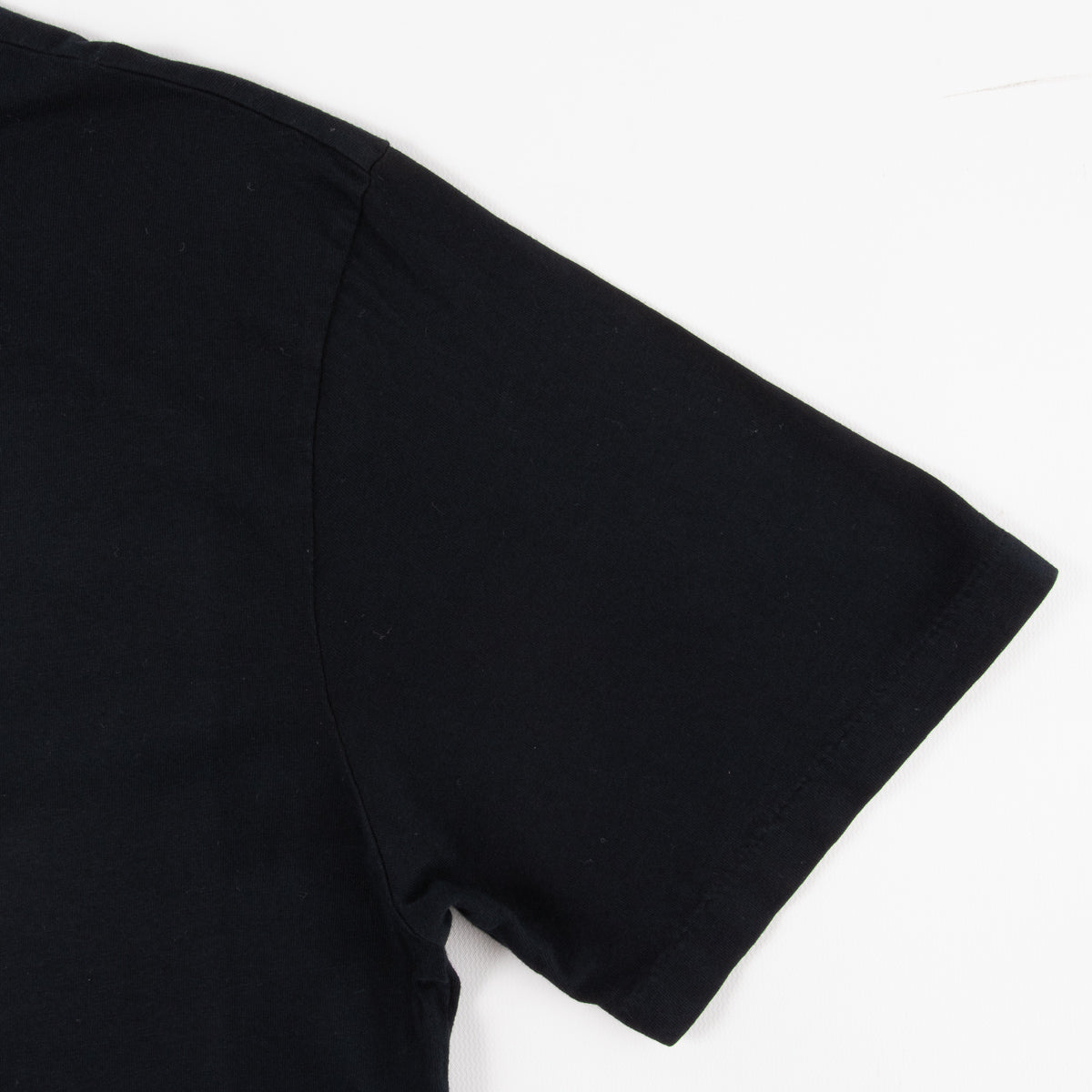
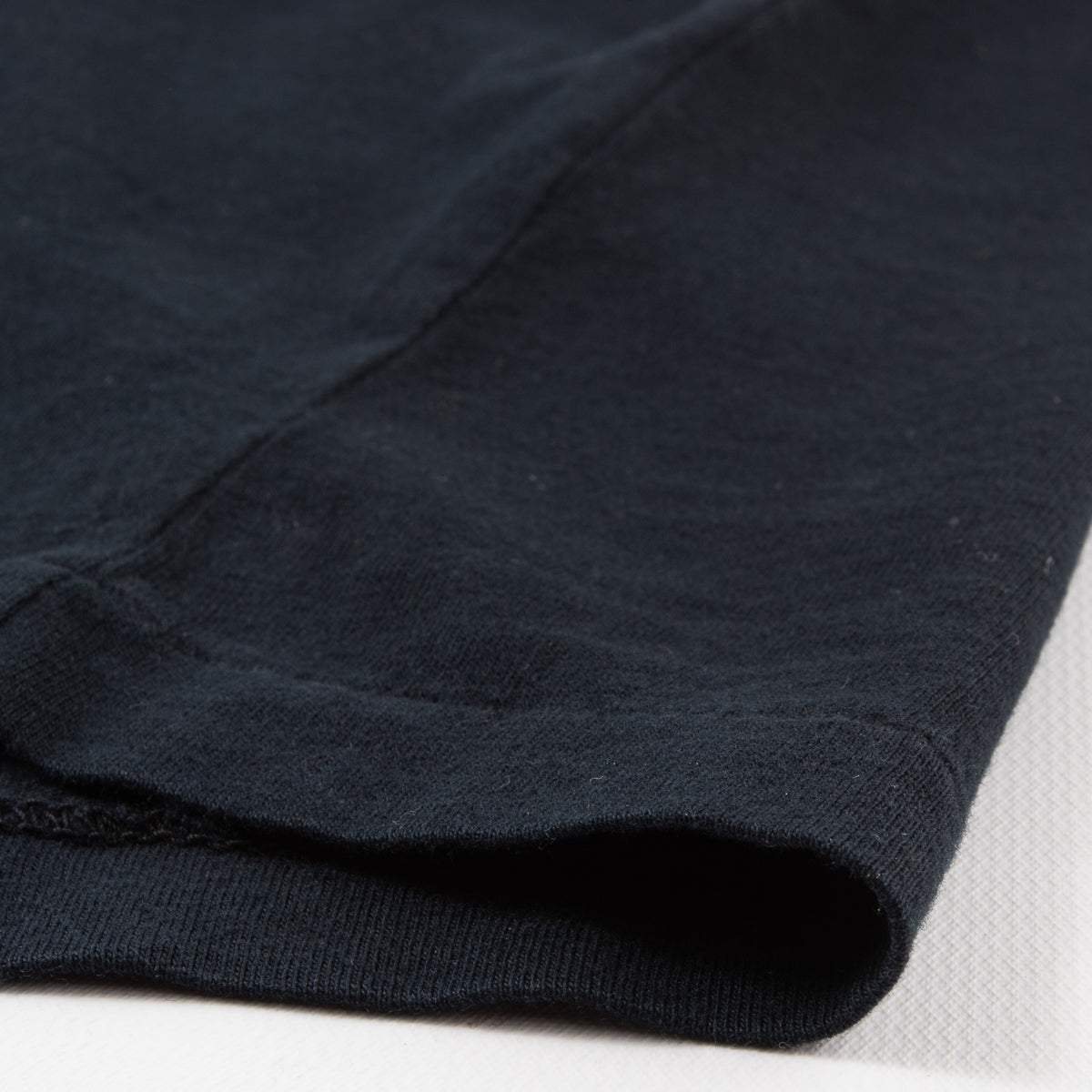
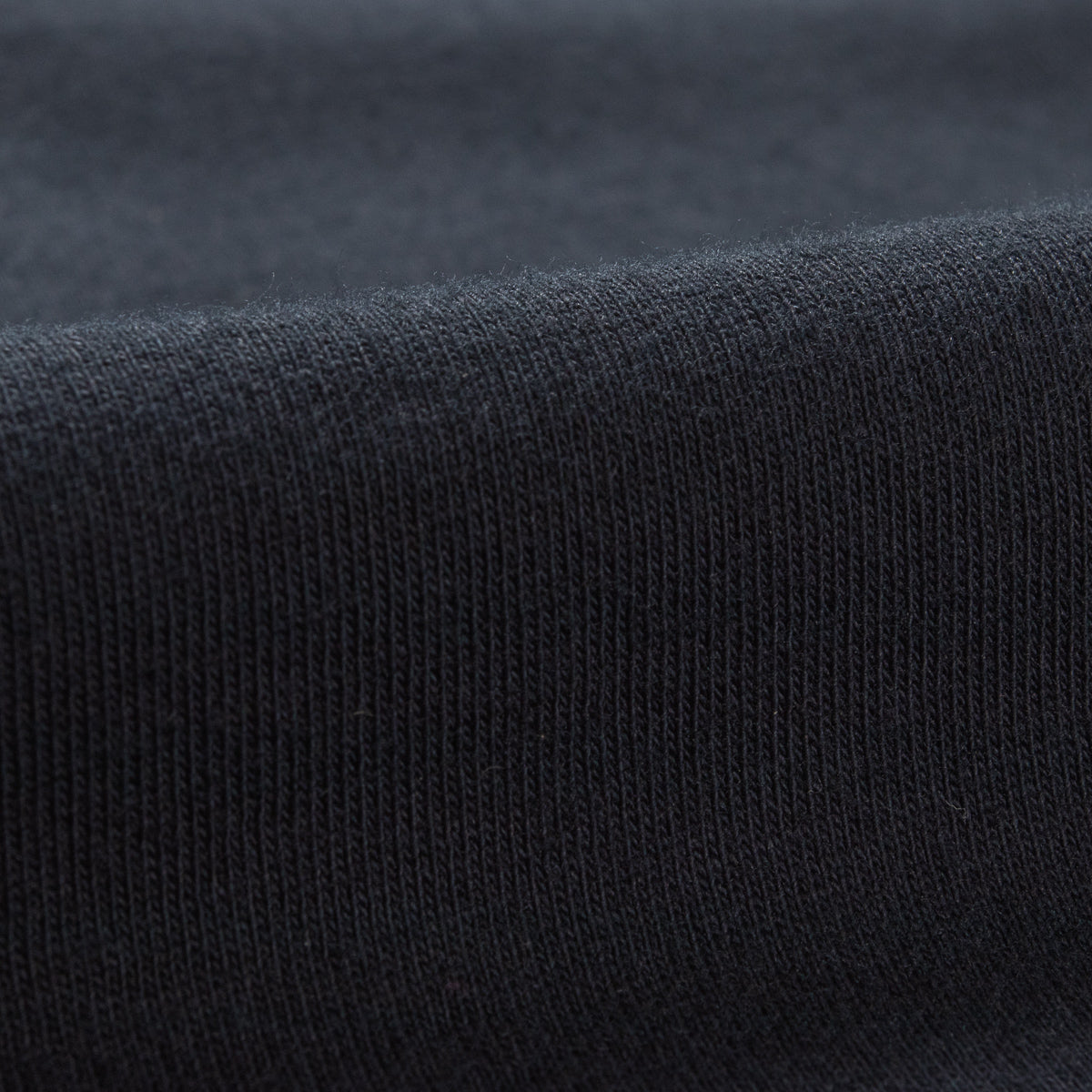
Black Trans Lives Matter Tee
Couldn't load pickup availability
Pickup currently unavailable at S&S NYC
Description
In 2020, as of June 9, there have already been at least 16 violent deaths of trans and gender non-conforming people in the U.S., five of whom were Black.
The Human Rights Campaign reports that there were at least 130 homicides of transgender people between 2013 and 2018, about 80% of whom were trans people of color.
Black transgender and gender non-conforming people also experience unemployment at four times the rate of the rest of the U.S. population, extreme poverty at eight times the rate of the general population, and homelessness at more than five times the rate of most Americans.
To help combat these crises, 100% of our total profit from this shirt campaign will be donated to the Marsha P. Johnson Institute, which does a lot of work for and by trans folks of color, and includes fellowships for community organizing and for artists; and the Okra Project, which pays Black trans chefs to provide food directly to Black trans people facing food insecurity.
We had a local genderqueer artist and friend of the shop provide the artwork for this shirt. The style for this work is similar to that of their street art, which focuses primarily on gender, feminism, and social issues.
Here is their statement on the process and the work:
- Dominique Rem'mie Fells, murdered in Philadelphia on June 9.
- Tony McDade, killed by police in Tallahassee on May 27.
- Nina Pop, killed in Sikeston, MO on May 3.
- Riah Milton, murdered in Liberty Township, OH on June 9.
I chose to represent actual people in this design, rather than using only words or an abstract image; it is still too common for gender non-conforming and trans people to experience several layers of erasure, so it was essential to show the humanity of this movement in particular.
I was able to find 2-5 photos for each person from which to work, and I used references from other Black trans folks and interpretation to complete the full figures. I wanted to both show each person as a recognizable individual, including aspects of the outfits they were wearing in their photos and their names, and as a representative of the many other trans folks of color who have been violently killed.
These people are, unfortunately, both, and this was the best way I could find to pay homage to all the trans lives lost as well as showing the individual humanity of these most recent victims.
I drew each figure by hand and carved them as linocuts. I do nearly all of my street art this way, and this method involves a lot of hands-on focus on each design; my street art also always involves words in lieu of faces. In this case, this method also created a very contemplative and personal process, and I hope that my respect for each of these people shows in the work. I hand-printed the final figures and scanned them to digitize the design for screen printing.
As a white genderqueer person, I wanted to use my time and effort to support Black trans lives, and not ask a Black trans artist to advocate for themself or for their community through this kind of art. Instead, the money from this campaign will help, in part, to provide fellowships for Black trans artists to do whatever kind of art they want, trans-related or not.
This graphic is printed on the newest iteration of our Telegraph Tee, our simple classic t-shirt.
Our previous tee factory went out of business during the pandemic (and took our labels and blank tees with them), so we’ve had to start over from scratch to continue our Telegraph Tee. Andrew from Freenote Cloth has done right by us, and has donated many hours of his time to help us source new fabric and new sewing facilities.
The fabric for the new version of the Telegraph Tee is a 8oz, 30/1, American-grown cotton spun, dyed, and knit in Los Angeles. The 30/1 count works like this - there are 840 yards of single-ply cotton thread on a spool, and the XX refers to how many spools there are in a pound. The higher the number, the finer the yarn, and the softer the shirt. Above 40/1, the fabric becomes too fine to wear in most cases, and we chose 30/1 as a happy medium between a soft hand and a long life.
- 100% 8oz cotton
- 30/1 yarn count jersey fabric
- Micro-denier damask weave labels
- True to size
- Wash cold, hang dry
- No shrinkage expected with cold wash and hang dry
- Made in Los Angeles
All measurements are in inches.
Model Gen wears a size 40
Gen's sizing specs are:
6'1 and 180lbs
41" chest and 31" waist
True to size. No shrinkage expected with cold wash and hang dry.
| Size | Front Length | Shoulder | Chest | Sleeve Length |
| Small | 26.5" | 18" | 39" | 7.75" |
| Medium | 26.5" | 19" | 41" | 7.75" |
| Large | 27.5" | 19.25" | 43" | 7.75" |
| Extra Large | 27.75" | 20.75" | 45" | 8" |
| XXL | 28.25" | 21.5" | 47" | 8.25" |
Shipping
Returns

Black Trans Lives Matter Tee
Size Guide
All measurements are in inches.
Model Gen wears a size 40
Gen's sizing specs are:
6'1 and 180lbs
41" chest and 31" waist
True to size. No shrinkage expected with cold wash and hang dry.
| Size | Front Length | Shoulder | Chest | Sleeve Length |
| Small | 26.5" | 18" | 39" | 7.75" |
| Medium | 26.5" | 19" | 41" | 7.75" |
| Large | 27.5" | 19.25" | 43" | 7.75" |
| Extra Large | 27.75" | 20.75" | 45" | 8" |
| XXL | 28.25" | 21.5" | 47" | 8.25" |
Curious as to how we size our garments? Check out how we measure.

